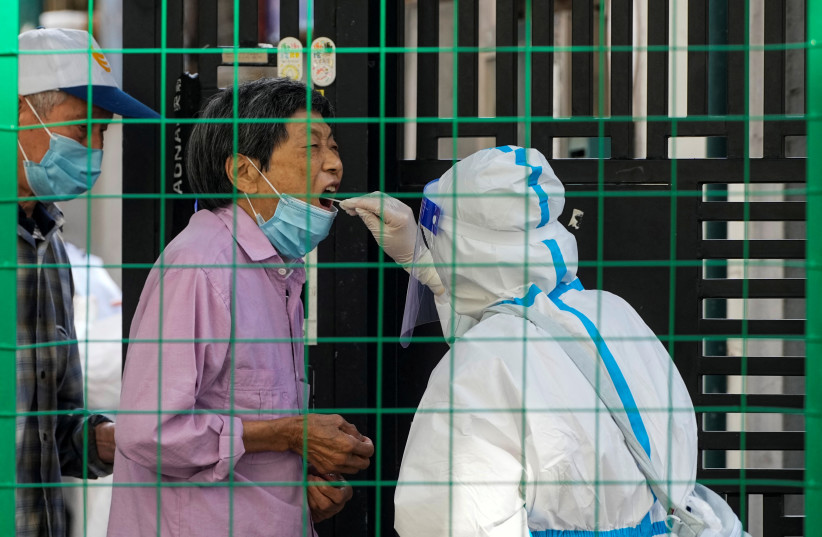More than two years into the COVID-19 pandemic, many authoritarian regimes continue to provide misleading or unclear information to the world about how they have handled the pandemic, as well as continuing to withhold information about other health emergencies.
North Korea recently said it had “dispatched medical crews and epidemiological investigators to a province battling the outbreak of an intestinal disease,” state media reported Sunday, without specifying what the disease is.
“At least 800 families suffering from what North Korea has only called an ‘acute enteric epidemic’ have received aid in South Hwanghae Province so far,” Reuters reported.
“Enteric refers to the gastrointestinal tract, and South Korean officials say it may be cholera or typhoid,” the report said.
The reports from North Korea come in the wake of warnings about the potential for a cholera outbreak in Mariupol, the Ukrainian port city that was attacked by Russia and partially destroyed in fighting in recent months.

“Researchers who predicted a 2017 cholera outbreak in Yemen now say conditions are growing ripe in Mariupol,” Voice of America reported. “The city is at elevated risk because water and sewage systems were damaged in the fighting.”
These stories are also linked to ongoing coverage of the lockdowns in China, which claims it is trying to get COVID-19 under control. Beijing uses policies that are often secretive in its drive for “zero COVID,” its policy for fighting the pandemic.
Overall, the issues involved illustrate that in secretive regimes and countries that are not transparent with their data, there may be an increased risk of health emergencies that could affect the entire world.
<br>China’s role in the spread of COVID-19
The initial outbreak of the pandemic in late 2019 is still clouded in mystery. Despite investigations, the lack of complete data and limited access to information for researchers has meant that various joint studies with China leave scientists with more questions than answers.
The democratic world must therefore be concerned about how future health emergencies could arrive from places such as North Korea. The issue of monitoring those future threats is important. If authoritarian regimes pose a greater threat to world health than other countries, questions must be asked about how to monitor the threat.
The tragedy of the pandemic shows that relying only on Western scientific experts to warn the global community is likely not enough. This is because Western partnerships in Wuhan, China, where COVID-19 was first identified, should have resulted in increased knowledge about exactly what was taking place during the early stages of the virus’s spread.
Yet this wasn’t the case, and it doesn’t appear that Western democracies were sufficiently prepared or knowledgeable about the threat. Instead, they waited until late February and early March to put in place any kind of response, by which time COVID had already spread to dozens of countries.
This failure to act was likely due, at least in part, to their concerns being minimized by China through a joint study of what was happening in Wuhan that began in January and wrapped up in February. That study, and the resulting joint WHO press conference on February 24, gave a false sense of optimism.
This points to the need for national security and intelligence experts to look at how the spread of potentially dangerous outbreaks in authoritarian regimes may pose a threat. The current report from North Korea is only one example of partial reports with crucial details missing.
It appears that there have been more and more of these “potential” health-outbreak emergencies since the pandemic, since we are more sensitive now to these reports than before. It is crucial that we assess the potential health threat posed by authoritarian regimes, whose policies do not serve the best interests of Western democracies.
